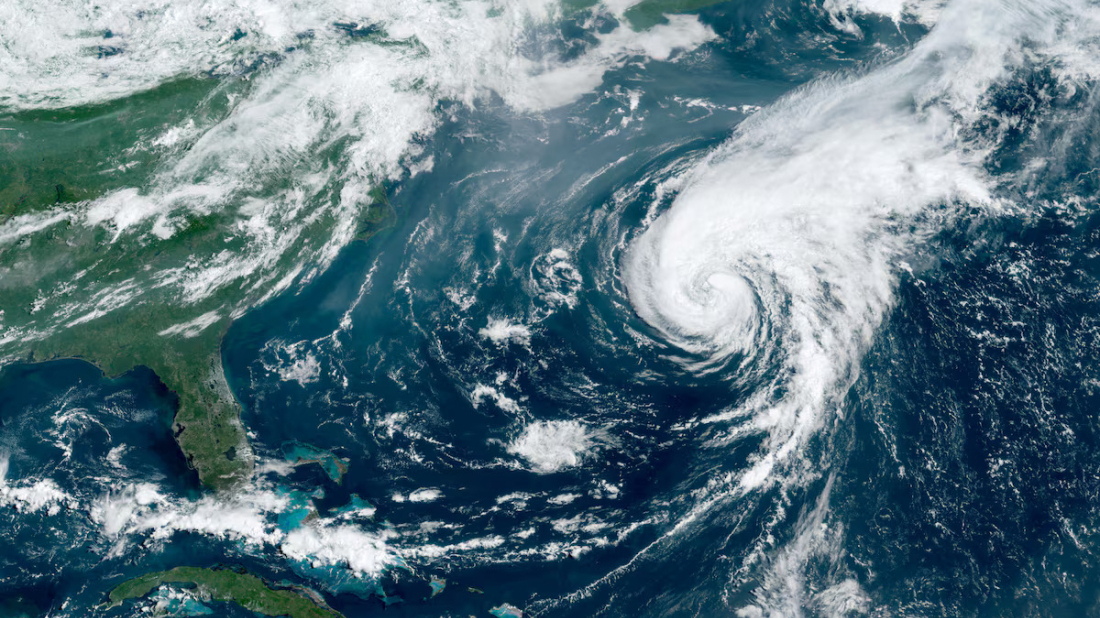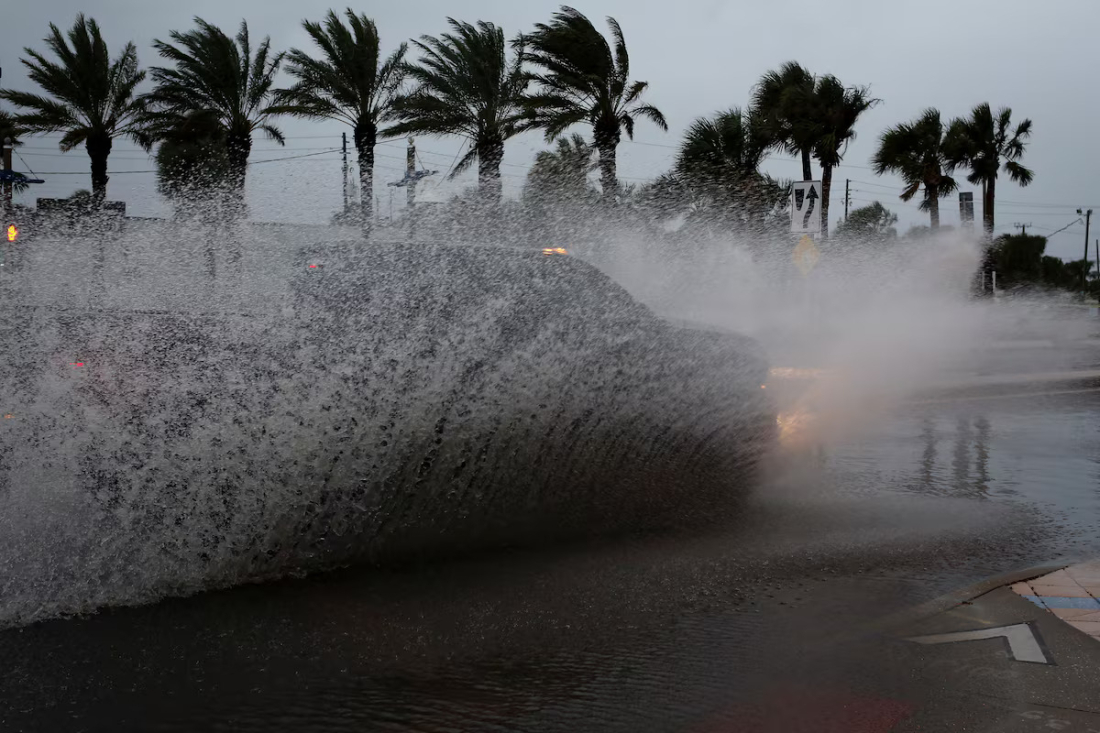live Iran and Israel escalate military action following Iran’s Supreme Leader Ali Khamenei’s death
Follow the latest developments and global reaction after the U.S. and Israel launched “major combat operations” in Iran, prompting reta...

As Hurricane Melissa barrels towards Jamaica as a powerful Category 4 storm, questions often arise about how these tempests get their names.
From Alberto to William, each hurricane name follows a carefully designed global system, one built not just for order, but to save lives, prevent confusion, and communicate clearly in times of crisis.
Why hurricanes are named
The naming of hurricanes serves a vital purpose: it helps meteorologists communicate more effectively with the public. Giving storms official names makes warnings clearer, reduces confusion, and allows authorities to issue faster, more precise updates. The practice began in various parts of the world during the mid-20th century and gained prominence during World War II, when military meteorologists found that naming storms made them easier to track and report.
How hurricane names are chosen
The World Meteorological Organisation (WMO) manages six alphabetical lists of hurricane names, reused every six years. Each list begins anew on 1 June, marking the start of the Atlantic hurricane season.
For example, this year’s list began with Alberto and will conclude with William, names that will reappear in 2030, unless any are retired due to severe impact. Melissa, the current storm threatening Jamaica and parts of Cuba, is one of the names from this year’s rotation.
A look back at history
Before the modern system came into effect, storms were named more arbitrarily. They were sometimes referred to by the ships they struck, religious feast days, or the regions they devastated, such as the Great Galveston Hurricane of 1900. Over time, meteorologists recognised the need for a consistent, international naming system that would make cross-border communication easier during emergencies.
When a storm gets its name
A developing cyclone is officially given a name when its sustained winds reach 63 kilometres per hour, upgrading it to tropical storm status. When winds intensify to about 120 kilometres per hour, it becomes a hurricane. Assigning a name early in the process helps meteorologists and disaster agencies coordinate warnings and track the storm’s evolution as is now the case with Hurricane Melissa.

Male, female, and retired names
Today’s naming lists alternate between male and female names for balance and clarity. However, not all names are reused. If a hurricane causes catastrophic loss of life or destruction, its name is retired permanently to honour victims and prevent confusion in future forecasts. The World Meteorological Organisation makes such decisions collectively, ensuring cultural sensitivity following major disasters.
A global system built for clarity
What began as a practical wartime measure has become an essential global communication tool. Naming hurricanes, such as Melissa, now menacing Jamaica is not merely a formality. It is a system grounded in science, history, and humanity, designed to ensure that critical information reaches people quickly and clearly when every second counts.
Follow the latest developments and global reaction after the U.S. and Israel launched “major combat operations” in Iran, prompting retaliation from Tehran.
Tensions between the U.S. and Iran are escalating, with Washington ordering a significant military build-up in the region and multiple countries evacuating diplomatic staff amid fears of further instability.
Governments across the region responded swiftly to Israel’s strikes on Iran, closing airspace, issuing travel advisories and activating contingency plans amid fears of escalation.
Two people were killed and around 40 injured when a tram derailed in central Milan on Friday (27 February), a spokesperson for the local fire service said.
A senior Iranian official has warned Israel to “prepare for what is coming”, insisting that Tehran’s response to the latest escalation in the Middle East will be made openly and without limits.
The death toll from heavy rains and flooding in Brazil’s Minas Gerais state has risen to 46, authorities said, with 21 people still reported missing. The storms triggered landslides and widespread flooding, displacing thousands across Juiz de Fora and Uba.
The administration of U.S. President Donald Trump on Thursday (12 February) announced the repeal of a scientific finding that greenhouse gas emissions endanger human health, and eliminated federal tailpipe emissions standards for cars and trucks.
Tropical Cyclone Gezani has killed at least 31 people and left four others missing after tearing through eastern Madagascar, the government said on Wednesday, with the island nation’s second-largest city bearing the brunt of the destruction.
Rivers and reservoirs across Spain and Portugal were on the verge of overflowing on Wednesday as a new weather front pounded the Iberian peninsula, compounding damage from last week's Storm Kristin.
Morocco has evacuated more than 100,000 people from four provinces after heavy rainfall triggered flash floods across several northern regions, the Interior Ministry said on Wednesday.
You can download the AnewZ application from Play Store and the App Store.

What is your opinion on this topic?
Leave the first comment